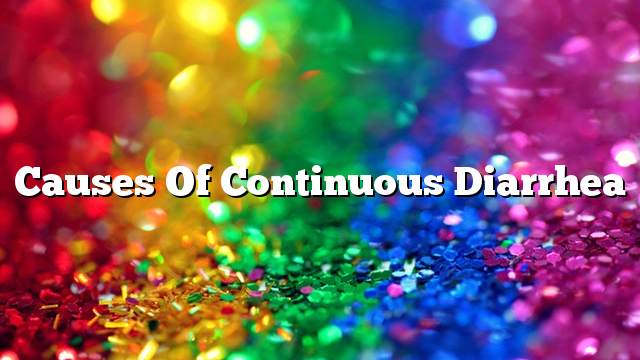diarrhea
Diarrhea can be defined as a frequency of bowel movements or softness in the stool, so that the person feels abdominal pain and uncomfortable movement in the intestine, with the gas coming out and the feeling of constant need to enter the bathroom and the inability to control the urge to urinate so that The person either refrains from coming out or solving the problem and treating it immediately, especially if he is injured outside the house or if he intends to go out is necessary and urgent.
Causes of persistent diarrhea
- Viruses: There are many viruses that may cause severe and persistent diarrhea in adults and young people in age.
- Bacteria and parasites: Contaminated food or contaminated water can transmit bacteria and parasites to the body, such as Giardia lamplasia, and cryptosporidium. Common bacterial causes of diarrhea include salmonella, shigella and E. coli, which occurs when traveling.
- Medications: Many medicines can cause diarrhea. The most common are antibiotics. They destroy both good and bad bacteria, which can lead to imbalance in the natural balance of bacteria in the intestines. This disorder can sometimes lead to infection of bacteria called clostridium. , Which can also cause diarrhea.
- Lactose: Lactose is the sugar found in milk and other dairy products, and many people find it difficult to digest so they develop diarrhea after taking these products. The body produces the enzyme that helps digest lactose, but for most people, the levels of this enzyme decrease rapidly after childhood.
- Fruit sugar: A sugar that is naturally present in fruits and honey and added as a solvent for some beverages, and can cause diarrhea for some people who have difficulty digesting.
- Sweeteners: These sweeteners found in chewing gum and other sugar-free products can cause diarrhea for some people.
Treatment of continuous diarrhea
Most cases of diarrhea go away on their own within a few days, but to reduce its irritating symptoms are some of the following steps:
- Drink plenty of fluids: including water, juices every day, and avoid caffeine and alcohol.
- Gradually add dietary fiber to food. As bowel movement returns to normal, try to eat toast, eggs, rice or chicken.
- Avoid eating foods such as dairy products, fatty and heavy foods on the stomach.
- Eating bananas: Bananas help to calm the symptoms associated with diarrhea, especially feces, it is known that eating a lot of it causes constipation.
- Drink corn starch: The starch helps to control diarrhea more and to stop the symptoms associated with it, especially the softness of the stool.
